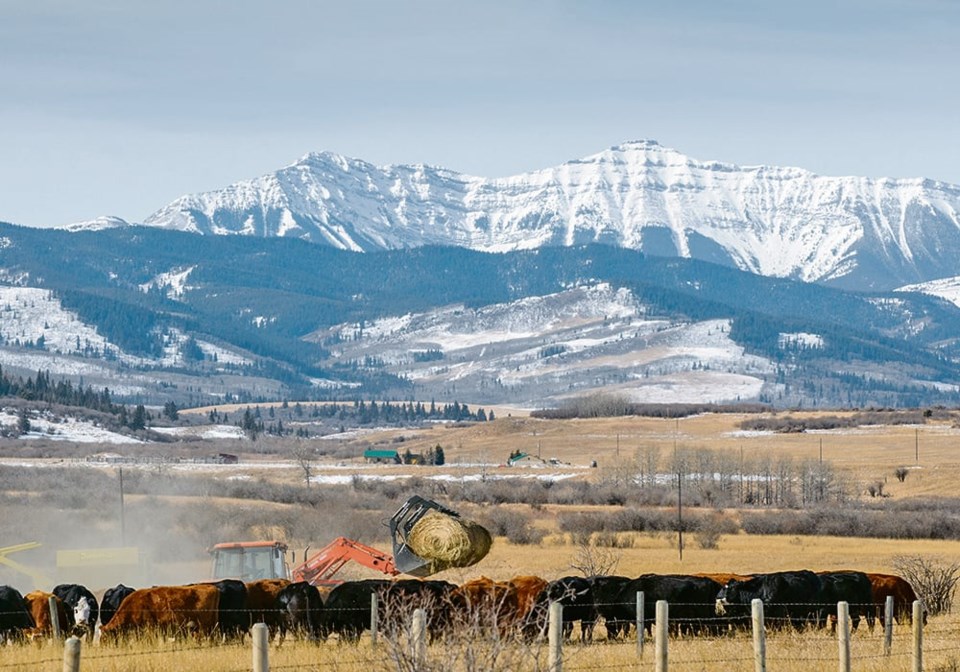Alberta Beef Producers has reached an agreement in principle about its financial contribution to the Canadian Cattle Association.
If the proposed three-year deal is ratified by the CCA at its annual general meeting March 22 to 24 in Ottawa, it will give the provincial organization more certainty over its funding by basing it on retained dollars, said general manager Brad Dubeau of ABP.
However, “a little bit less money” will be provided to the CCA, he said during an interview. Although ABP has been happy to be the major funder of CCA and other national organizations, it needs to be fiscally stable if it is to fully continue its work helping the province’s beef producers, he said.
It floated the possibility early last year that it could be forced to reduce its contribution to CCA by up to $1 million per year, slashing the national organization’s funding by as much as one-third. A working group was formed to explore the issue before the end of a five-year funding agreement with CCA on July 1, 2023.
Check-off refund requests from some Alberta beef producers and feedlot operators had substantially reduced the funding ABP receives. Due to the fact its members collectively own much of the national herd of cattle, any change by ABP could have a significant impact on CCA, which receives about $3 million per year from marketings or sales of cattle by producers across the country.
However, both the CCA and ABP are an essential part of “team beef” when it comes to fighting for producers, said general manager Ryder Lee of CCA. He pointed to how they joined forces last year to help successfully defeat proposed changes to federal regulations that would have required front of label health warnings on packaging for ground beef and pork.
“We all work together on these things and make sure we’re not working at cross purposes, for sure,” he said during a recent meeting involving Dubeau at ABP’s central zone at Liberty Hall northeast of Bluffton, Alta. “And we work on being accountable to producers, and that’s why we’re here at a meeting like this to show them what their funds get.”
A checkoff of $4.50 per head is set aside by beef producers from the sale of cattle. From that comes a non-refundable mandatory national levy of $2.50 to support the Beef Cattle Research Council and other initiatives.
However, producers can apply twice per year for refunds of all or part of the remaining portion of the $4.50, which consists of an ABP service charge of $2 per head. Although the refund form contains the option for producers to retain 53 cents of their $2 to cover ABP’s expenditures to CCA under the five-year agreement, there hasn’t been much uptake.
Producers voted to keep a refundable checkoff in a 2018 plebiscite, although only about 1,800 producers cast a ballot. ABP board chair Melanie Wowk said in a 2021 interview that there were 965 refunds totalling about $3 million, which meant roughly 46 percent of total service charges were lost to ABP.
There was a slight decrease in refund requests for ABP in 2022 compared to the previous year, she said during an interview Oct. 13. “I think we were close to 50 percent (in 2021), and we’re sitting a few percent lower than that.”
The agreement in principle will mean CCA will receive “a little bit less because they would be assessing us on retained dollars, so just to be clear, we would still be assessed on gross marketings, but we would only pay on what we retain, so it would be calculated at 53 percent,” said Dubeau.
“And then we’ve asked in the agreement that ABP isn’t held in a situation where that’s a payable hanging over our head. That’s where we’ve asked for this three-year agreement…”
It will allow ABP to know that “the dollars it retains is what it works off of as well as CCA so that there isn’t this potentially reaching into reserves and so forth to cover costs at ABP, and hopefully that gives us a bit more structure over the next three years,” he said.
Another option is having checkoffs collected only one time per year at the packer level, which is a practice followed by Australia, said Dubeau.
He said ABP doesn’t yet know if it wants to pursue the option. “I want to be very, very clear, we are not advocating for the change. We are asking producers if they would like us to look at how we collect checkoffs and if we’d like to do it differently.”
The current arrangement allows each sector of the beef industry ranging from cow-calf producers to feedlots to share some of the cost as cattle move through the system, said Dubeau. However, switching to something like Australia’s could be an opportunity to reduce some of the slippage caused by privately traded cattle, he said.
Contact [email protected]



